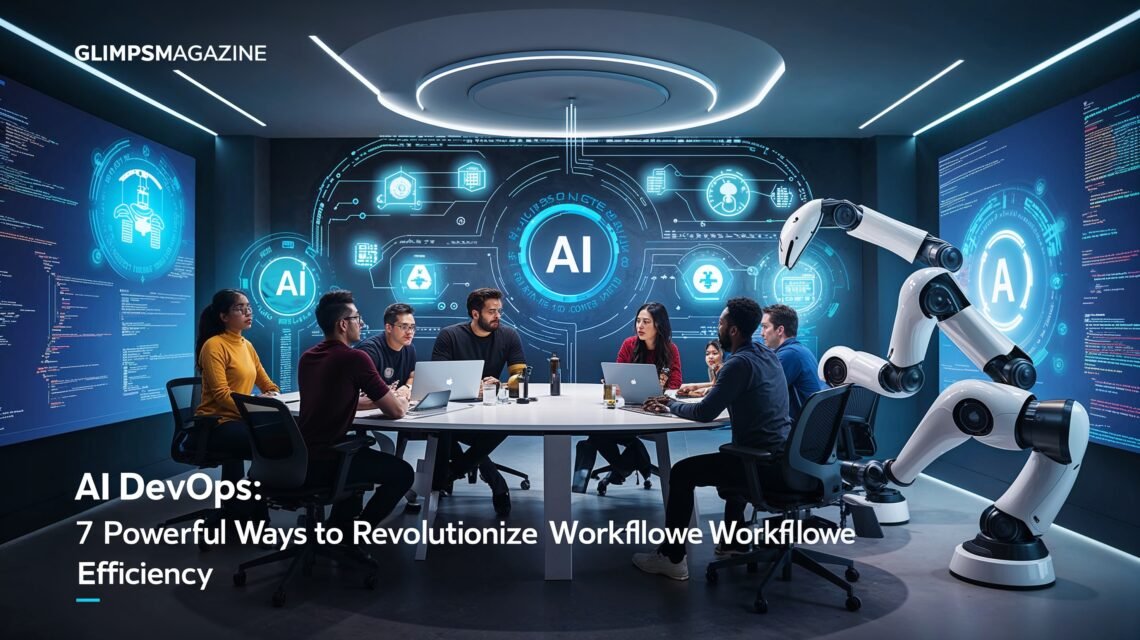Robotics, IT, healthcare, and so on have felt the impact of AI technology, and software development is no exception. AI DevOps refers to the practices of AI and DevOps, aiming to transform and automate the ALM processes. Such a combination helps companies standardize and automate their processes and reduce the chances of errors.
Table of Contents
Understanding the Fusion of AI DevOps and Development Operations
When AI’s machine learning and natural language processing capabilities are applied to traditional DevOps practices, several merits can be gained. Such a combination of technologies and processes assists in predicting and averting issues during software creation processes.
Super-smart machines can comb through endless amounts of data and discern reports that the average person might not. Information like this allows teams to innovate, mitigate hazards, and strategize and run projects better. This blend fundamentally changes the dynamics within the development teams’ ways of solving problems and the speed of executing tasks.
Boosting Workflow Automation for Better Efficiency

One of the big advantages that AI can bring to DevOps is the elimination of reoccurring and time-wasting tasks. Tasks such as code integration, testing, and deployment can be made efficient, enabling the teams to engage in innovative and strategic activities. AI-constructed models can predict what activities are likely to succeed or fail by tapping on historical data.
This assists in optimal management and {anew|replaning} of resources. With such automation, developers will likely reduce human errors and faster development cycles, leading to more consistent and quicker software delivery to the market.
Advancing Continuous Integration and Delivery Pipelines
Automation techniques in DevOps significantly increase CI and CD processes. It can execute new test cases independently, debugging and relaying the information to developers instantly. It rewires how developers understand and resolve problems and keeps an excellent code base by shortening the time between identifying problems and the solution. Furthermore, with the Help of AI-powered analytics, organizations can foresee possible areas of concern and ensure that the CI/CD processes are as fast and efficient as possible, making it easy to deploy changes and introduce new features. This enables organizations to update and introduce features more often without sacrificing quality.
Proactive Issue Resolution and Maintenance
Intelligent systems equipped with data analytic approaches can determine problem areas even before they emerge, as they can look for patterns that would suggest a likely impending failure. This maintenance practice is critical as it helps prevent outages and ensures software applications run optimally. Such tools powered with AI will, in turn, offer intervention or even take over the task and implement the corrective action on the system, shortening the duration to resolve the same. This technique not only enhances productivity but also retains the stability and reliability of the software environment.
As stated by OpenText, “Help address problem areas in the DevOps life cycle of organizations across all the app dev environments using an AI conversational search. Look for and fix something in applications before it hinders the delivery progress.”
Enhancing Team Collaboration and Decision-Making
Facilitated AI usage in development operations has led to more teamwork in development, operations, and quality assurance. All team members have access to current data and insights because they are on a single platform supported by intelligent systems. With this kind of transparency, teams do not waste so much time making communication and do not waste time making decisions, as everybody knows what should be done. Moreover, AI analytics finds successful factors and can be used to recognize and implement strategies for development and deployment to ensure that every shoulder is on the wheel.
Optimizing Resource Allocation and Cost Management
Besides enhancing existing workflows and automation, applying AI DevOps in development operations also enables better allocation of resources. Intelligent tools can enhance or scoop out the project and assess the most productive way that a project’s time, people, and even finances can be utilized. With such strategic thinking, organizations will be able to manage lower costs but high output levels. Through anticipating forthcoming problems and planning, organizations can avoid preventing costs that won’t contribute to any profit-making activities.
The combination of artificial intelligence with development operations changes how software is developed, tested, and released within teams by streamlining the procedures, forecasting problems, and fostering teamwork. Implementing this intelligent automation improves efficiency while reducing the mistakes occurring during the processes in different organizations. With the proliferation of AI technologies, the dependence on DevOps is likely to increase with time as more and more processes become automated. Businesses looking to perform better in a competitive environment must integrate AI into their DevOps environments if they want to be successful in the long term.


 AI in Canada: Transforming Challenges into Growth
AI in Canada: Transforming Challenges into Growth  Which Technologies Are Reshaping Modern Urban Life?
Which Technologies Are Reshaping Modern Urban Life?  Enhance Your Videos with AI Subtitle Generator for Better Engagement
Enhance Your Videos with AI Subtitle Generator for Better Engagement  Keeper Standard Test: Ensuring Top Quality and Performance with Precision
Keeper Standard Test: Ensuring Top Quality and Performance with Precision